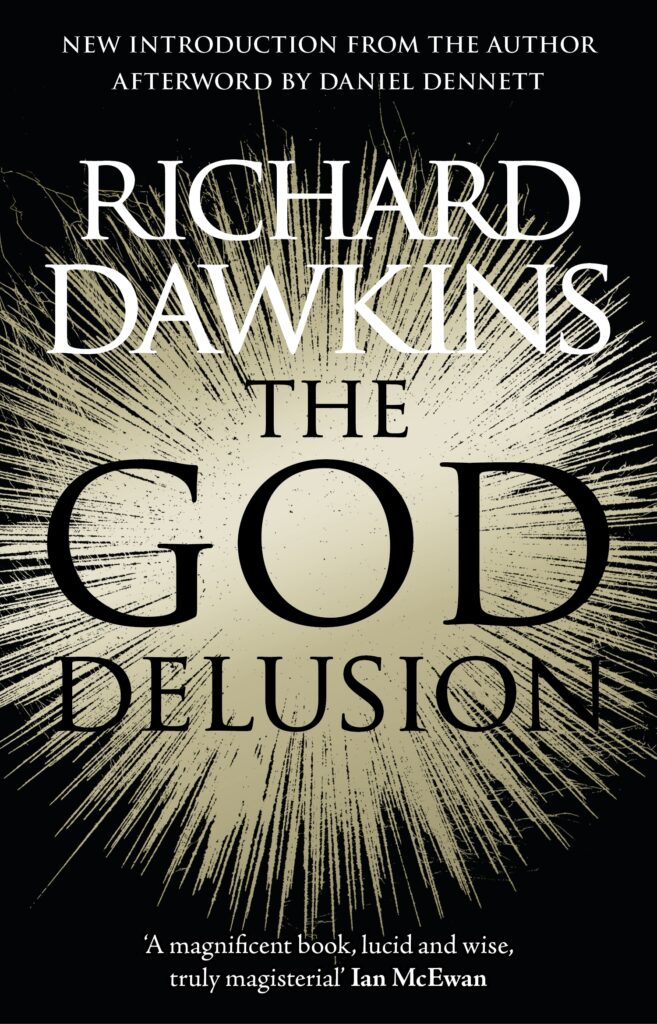
The God Delusion is a 2006 book by British evolutionary biologist, ethologist Richard Dawkins, a professorial fellow at New College, Oxford[1][2] and, at the time of publication, the Charles Simonyi Chair for the Public Understanding of Science at the University of Oxford.
In The God Delusion, Dawkins contends that a supernatural creator, God, almost certainly does not exist, and that belief in a personal god qualifies as a delusion, which he defines as a persistent false belief held in the face of strong contradictory evidence. He is sympathetic to Robert Pirsig‘s statement in Lila (1991) that «when one person suffers from a delusion it is called insanity. When many people suffer from a delusion it is called religion.»[3] With many examples, he explains that one does not need religion to be moral and that the roots of religion and of morality can be explained in non-religious terms.
In early December 2006, it reached number four in the New York Times Hardcover Non-Fiction Best Seller list after nine weeks on the list.[4] More than three million copies were sold.[5] According to Dawkins in a 2016 interview with Matt Dillahunty, an unauthorised Arabic translation of this book has been downloaded 3 million times in Saudi Arabia.[6] The book has attracted widespread commentary, with many books written in response.
I følge Tom Holland så er det ikke mulig å formulere en meningsbærende setning innenfor det vestlige tankesettet som ikke er formet av de foregående . . .